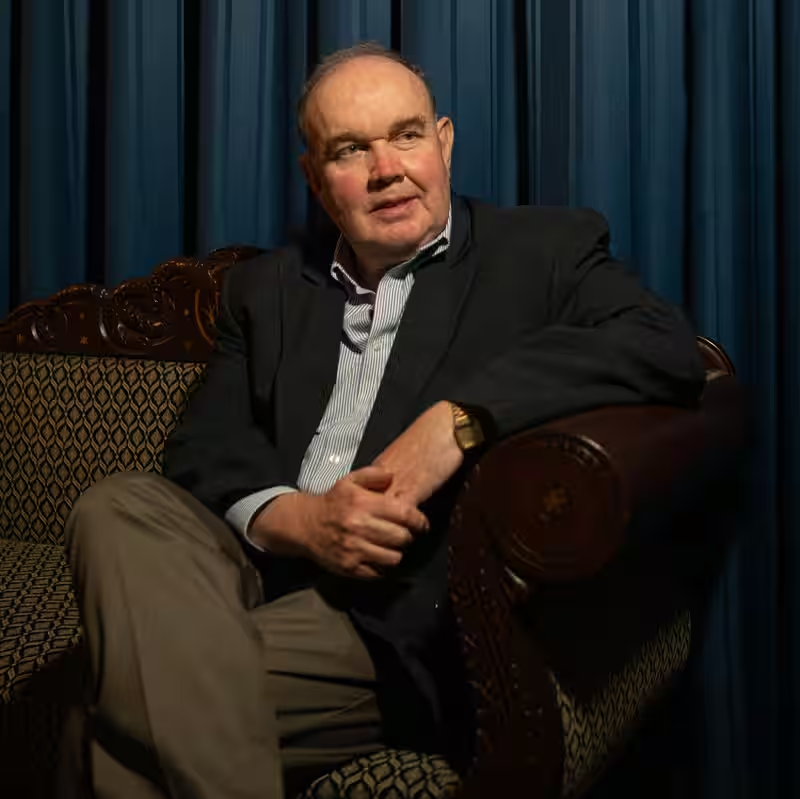“Porky” López Aliaga—Lima’s controversial right-wing mayor—has become Peru’s most polarizing political figure by channeling the brash rhetoric, culture-war tactics, and populist swagger of Donald Trump. Now, with presidential elections on the horizon, he’s not just mimicking the MAGA playbook—he’s positioning himself to lead an entire nation.
Table of Contents
- Who Is ‘Porky’ López Aliaga?
- MAGA Tactics Take Root in Lima
- Policy, Populism, and Polarization
- Can He Win the Presidency?
- What This Means for Latin America
- Sources
Who Is ‘Porky’ López Aliaga?
Born Rafael López Aliaga, the 63-year-old businessman-turned-politician earned the nickname “Porky” in school—a moniker he’s since embraced with defiant pride. A devout Catholic and self-described “anti-communist,” he rose to national prominence after winning Lima’s mayoral race in 2022 on a platform of law-and-order, anti-corruption, and traditional values.
But it’s his style—not just his policies—that’s drawn global attention. From fiery social media rants to combative press conferences and red-hat rallies, López Aliaga has cultivated a persona that feels eerily familiar to observers of U.S. politics.
MAGA Tactics Take Root in Lima
López Aliaga doesn’t hide his admiration for Donald Trump. He’s reposted Trump’s speeches with Spanish subtitles, praised his border policies, and even adopted the “America First” ethos—rebranded as “Peru First.”
His rallies now feature chants of “¡Perú! ¡Perú!” echoing the “USA! USA!” energy of Trump events. Supporters wave flags, denounce “globalist elites,” and wear merchandise emblazoned with slogans like “Make Lima Great Again.”
| Trump Trait | López Aliaga’s Version |
|---|---|
| “Fake News” attacks | Regularly calls mainstream Peruvian media “traitors” and “communist puppets” |
| Populist rallies | Holds weekly “People’s Forums” in downtown Lima with live-streamed speeches |
| Culture war focus | Opposes gender education, LGBTQ+ rights, and “woke” policies in schools |
| Election skepticism | Claims past elections were “rigged” unless his allies won |
Policy, Populism, and Polarization
Beyond theatrics, López Aliaga pushes a hardline agenda: slashing taxes for businesses, militarizing police response to protests, banning abortion in all cases, and expelling undocumented migrants—mostly from Venezuela and Colombia.
He’s also launched a “Moral Renewal” campaign in Lima, installing public billboards with messages like “Family is Sacred” and “Work Hard, Complain Less.” Critics call it propaganda; supporters hail it as a return to “Peruvian values.”
Can He Win the Presidency?
Recent polls place López Aliaga in the top three for Peru’s 2026 presidential race, with around 22% support—trailing only former president Keiko Fujimori and economist Hernando de Soto. But his base is intensely loyal, young, and digitally mobilized.
Analysts note that Peru’s fragmented political landscape—marked by six presidents in the last decade—creates fertile ground for outsider figures. “He’s not just a mayor,” said Dr. Elena Rojas, a political scientist at Pontificia Universidad Católica del Perú. “He’s become a symbol of anti-establishment rage.”
What This Means for Latin America
López Aliaga’s rise is part of a broader right-wing surge across Latin America—from Argentina’s Javier Milei to Brazil’s Jair Bolsonaro. But unlike others, he’s explicitly modeling his movement on U.S.-style MAGA politics, raising concerns about democratic norms.
Human rights groups warn that his rhetoric fuels harassment of journalists and activists. Meanwhile, his ties to conservative Catholic groups and U.S. evangelical networks suggest deeper transnational alliances are forming.
Whether “Porky” becomes Peru’s next president remains uncertain—but one thing is clear: the MAGA wave has officially gone global.




